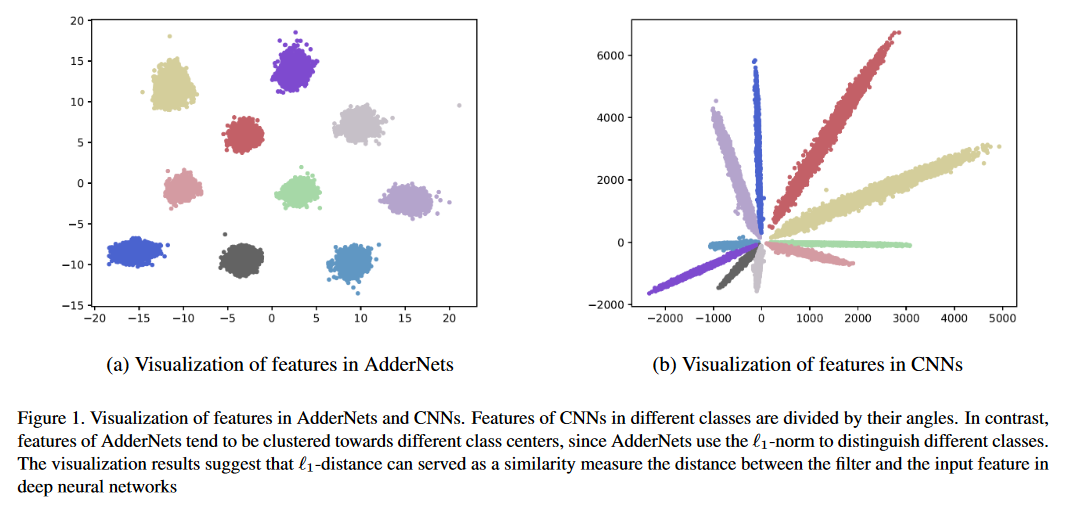AdderNet: Do We Really Need Multiplications in Deep Learning?
Compared with cheap addition operation, multiplication operation is of much higher computation complexity. The widely-used convolutions in deep neural networks are exactly cross-correlation to measure the similarity between input feature and convolution filters, which involves massive multiplications between float values. In this paper, we present adder networks (AdderNets) to trade these massive multiplications in deep neural networks, especially convolutional neural networks (CNNs), for much cheaper additions to reduce computation costs. In AdderNets, we take the $\ell_1$-norm distance between filters and input feature as the output response. The influence of this new similarity measure on the optimization of neural network have been thoroughly analyzed. To achieve a better performance, we develop a special back-propagation approach for AdderNets by investigating the full-precision gradient. We then propose an adaptive learning rate strategy to enhance the training procedure of AdderNets according to the magnitude of each neuron's gradient. As a result, the proposed AdderNets can achieve 74.9% Top-1 accuracy 91.7% Top-5 accuracy using ResNet-50 on the ImageNet dataset without any multiplication in convolution layer. The codes are publicly available at: https://github.com/huaweinoah/AdderNet.
PDF Abstract CVPR 2020 PDF CVPR 2020 Abstract


 MNIST
MNIST